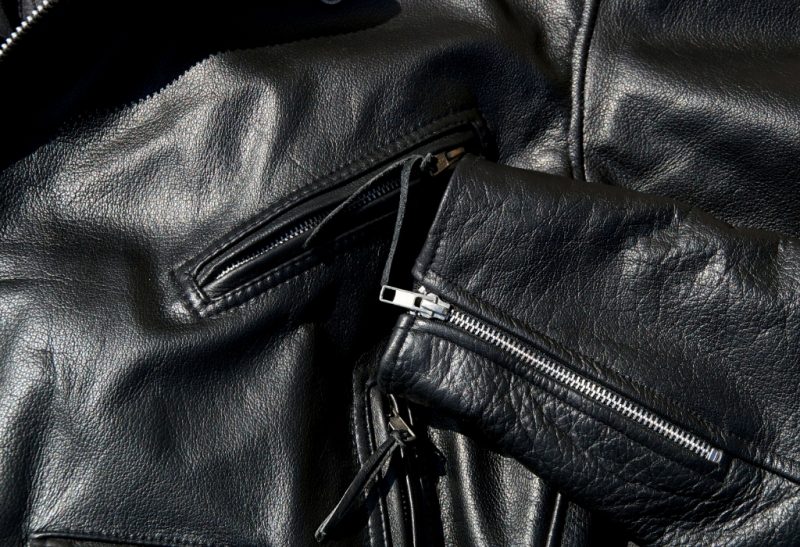Even if you aren’t usually scared of insects, you will probably feel terrified if you see bed bugs in your home. You will never see a single bed bug but rather a whole pack of them. If you find bed bugs in your bed they are probably already in your clothes as they love clothes as well.
Your bed is a great place for bed bugs to live in, but so is your wardrobe, which stands close to your bed. A full wardrobe is heaven for bed bugs! This is why the bed bug infestation can be very severe, to the point where sometimes one needs to get rid of your bed and your clothing altogether.
Why Have Bed Bugs Infested Your Clothes?
You open your wardrobe one day, you dress in your finest suit for your work, and you get baffled by the presence of stains on your lovely suit. You think these are regular stains but no, at further inspection you realize they are bed bugs feces! How the hell have they infested your clothes?
As we live busy lives, we often tend to travel every day – to school, to work, to church, etc. Bed bugs are one of the most amazing hitchhikers and they’re able to catch a ride on your pants, your coat, your shirt, purse, or a suitcase and the infestation has already started.
Another way to get bed bugs is if your neighbors already have them. In an effort to eradicate them they get rid of their mattress and if the container is near these bed bugs will find their way into your home.

Bed bugs love drinking blood, they feed on it! We are their main prey which is reason why you always get bed bugs from other people. Some people might have bed bugs on their clothes without knowing it and they transmit them on public transport or when visiting other homes.
Places like public stations and transportation, airports, libraries, retail clothing stores, and especially hotels, are the easiest place to catch them. Use only reputable hotels and stay away from the cheap ones. You’ll pay more for room but if you catch bed bugs, you’ll pay even more to get rid of them.
How Did Bed Bugs Get in Your Clothes?
Bed bugs can easily stick to any surface, including not only your mattress and clothes but also walls. They don’t have nests and they live by hiding away from humans in clothes or any other similar suitable place.
During the day, you will rarely see bed bugs. However, during the night, bed bugs will come out and feed on your blood while you sleep. Bed bugs probably got in your clothes either from your bed or from other people’s clothes. You may share the same wardrobe with other people on your job.
Of course, if you wash your clothes regularly, you are minimizing the chances of bed bug infestation. The important thing here is to DRY your clothes as this will KILL bed bugs, and not the washing process itself. More on this in just a second.
If I Have Bed Bugs, Do I Have to Throw Away My Clothes?
No, you don’t need to throw away your clothes unless the infestation has gotten out of hand. In this case, the disposal process needs to be done properly, as with your mattress.
The clothes will need to be packed properly to avoid bed bugs getting out. When you get rid of your clothes, make sure to check your wardrobe for other signs of bed bugs. You can use some of our recommended bed bug sprays to ensure that your wardrobe is clean.
In case you don’t want to throw away your clothes, you can use your washing machine. The washing process will still kill a majority of bed bugs but the heating process is what kills them completely. The heat of drying is deadly for bed bugs.
Bed Bugs in Clothes: Everything You Need to Know
Can Bed Bugs Live in Leather Clothes?

Bed bugs can live in any kind of material but leather would not be their favorite material. This is because leather isn’t very climber-friendly and bed bugs prefer to move quickly and without hassle.
Since they can’t burrow, bed bugs can’t pierce through the leather jacket but they can hide inside sleeves and pockets.
Can Bed Bugs Hide Eggs in Clothes?
Bed bugs can hide their eggs almost anywhere. Wherever there is a tear in your clothes or a piece of clothing that you don’t use often, they will hide their eggs there. Sleeves and openings on clothes are their favorite spots.
Can Bed Bugs Travel On Clothes?
Bed bugs can travel for miles on clothes, without being noticed. Catching a ride to the next house, hotel, or bus, and infesting every piece of furniture and clothing is what they do.
Bed bugs will not travel directly on your skin. The clothes can also have a higher temperature, meaning that they will prefer your purse, backpack, or suitcase. In some cases, if your commute isn’t too long, bed bugs will hide in the clothes and be able to survive. In long commutes, bed bugs will hide directly in your clothes and be carried directly to your home.
Bed bugs will not miss a chance to travel around with your wherever you go. If you suspect that you have bed bugs in your clothes, be sure to inspect every corner after washing and drying them thoroughly.
Can You Carry Bed Bugs Home on Your Clothes?

Yes, this is the most common way homes get infested. Even if you pick up a small number of bed bugs, they will multiply in a short period.
Will Bed Bugs Bite Me if I Have My Clothes On?
The reason they love mattresses and clothes is to be close to their source of food, which is their blood. However, bed bugs can survive up to two or three months without a meal, meaning that the frequency of their biting is relative.
If we’re talking about a cold temperature, bed bugs can live without a single drop of blood for a whole year! Sure, bed bugs will bite you even when you have your clothes on but this can go without you noticing as they feed once every five to ten days.
Eventually, you’ll start to notice red spots on your skin, which will quickly become itchy and unfortunately, this is the way people realize that something isn’t right.
Bed bugs are most active approximately one hour before dawn but they can also feed anytime if they’re hungry. The feeding lasts about 5 minutes and after that, the bed bugs return to their hiding spot. Since bed bugs despise heat, they will not stay on your skin for long.
How to Get Rid of Bed Bugs in Clothes?
The only thing bed bugs hate is heat. Since they’re cold-blooded animals, they can survive long in cold but are sensitive to heat. That’s why many professionals use heat to eliminate bed bugs from clothes and mattresses.
Related: How to Get Rid of Bed Bugs in Clothes – Easy Instructions
How to Prevent Bed Bugs from Getting into Clothes

In this section, we’ll take a look at some of the most effective methods of keeping bed bugs out of your wardrobe.
- Frequent Washing and Drying
Frequent washing and drying are essential for the complete extermination and also prevention of bed bug infestation. When washing your clothes, be sure to use hot water to maximize the effectiveness, and don’t forget to dry the clothes completely.
- Proper Storage
When treating your home for bed bugs, you must prevent them from spreading around your house by properly storing your clothes. The best way to do this is to store your clothes in tightly-sealed plastic containers or heavy-duty plastic bags. This will ensure that no bed bug can escape.
- Steaming and Vacuuming
Introducing high temperatures to your clothes is the best way to kill bed bugs. You can use a steamer to steam the areas where bed bugs usually hide. Your sofa, bed frame, wardrobe, carpets, and mattresses are usual spots that need to be steamed properly. You can use your vacuum cleaner which your steamer can’t reach.
List of Sources
Preparing for Treatment Against Bed Bugs. Oct 17, 2015, United States Environmental Protection Agency
[USDA] U.S. Department of Agriculture. 1976. How to Control Bed Bugs. USDA. Washington D.C.
Krueger L. 2000. Don’t get bitten by the resurgence of bed bugs. Pest Control 68: 58-64.
- How to Get Rid of Copperheads | Practical Guide - August 27, 2023
- How to Get Rid of Corn Snakes | What Makes Them Aggressive? - August 27, 2023
- How to Get Rid of Alligators | Safety Measures and Removal Methods - July 16, 2023
